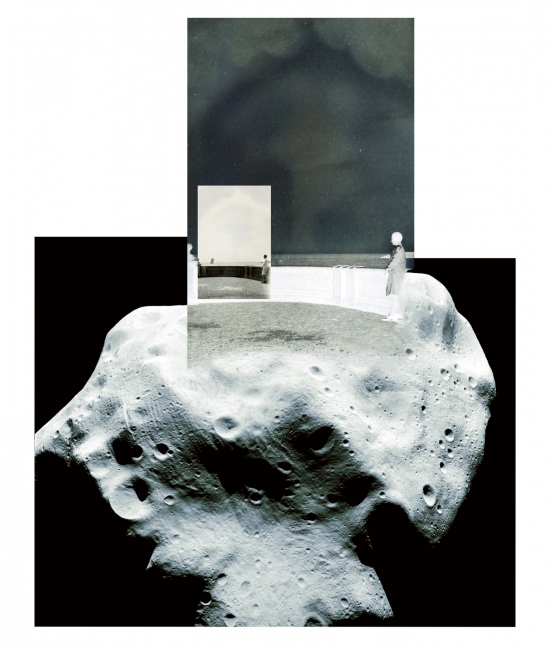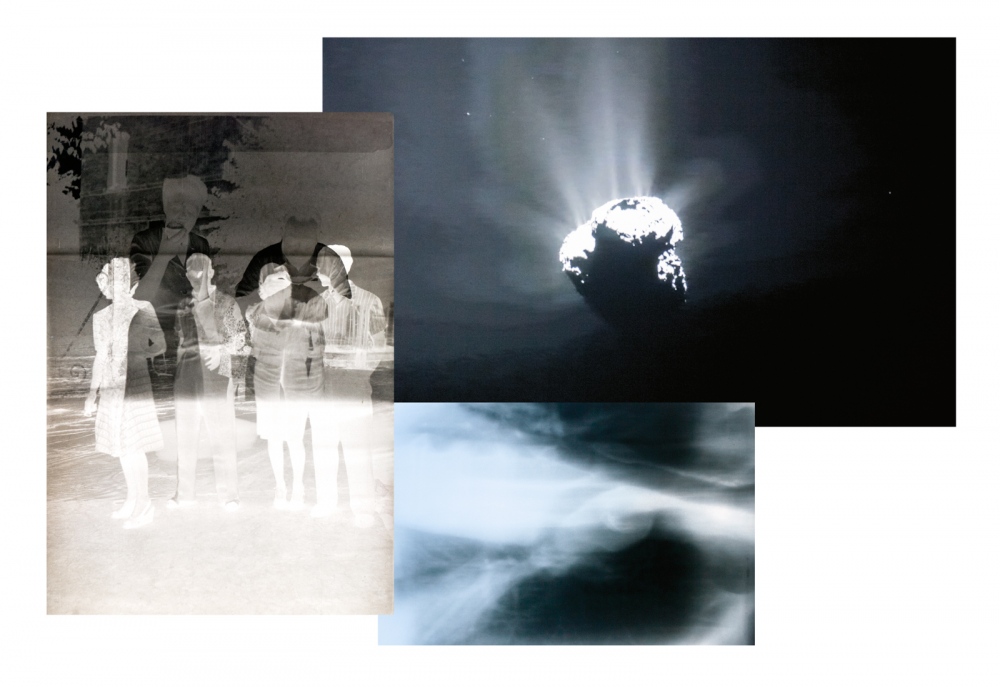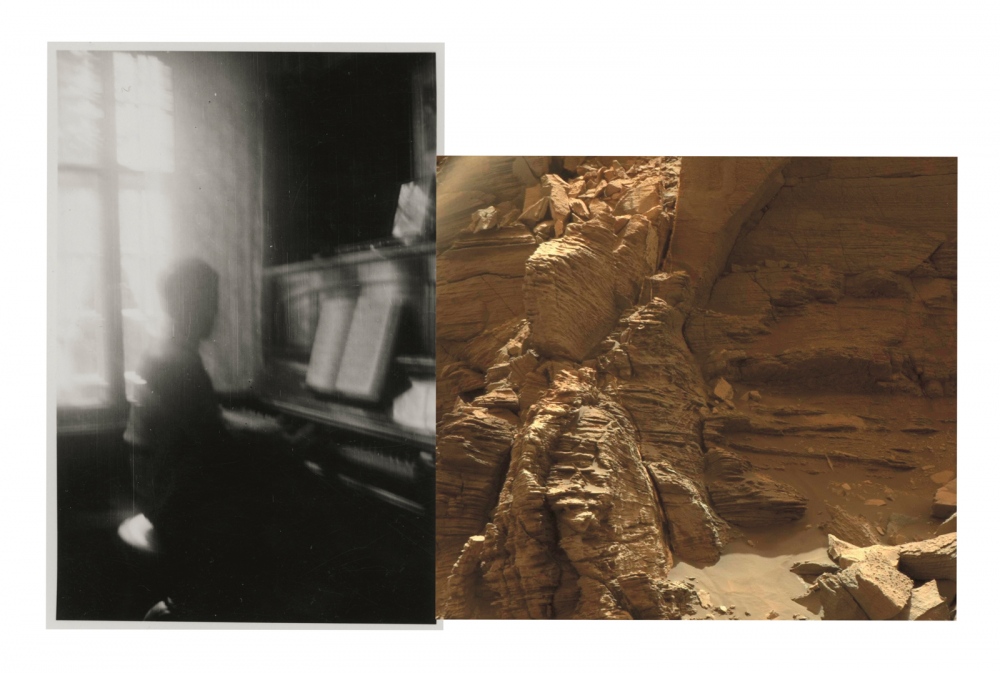This project is an investigation on light, time and space on the one hand within the subject of photography itself and on the other hand on the example of the space mission "žRosetta".
Images from NASA and ESA depict the journey to the comet 67P, which have been the designation of the mission "žRosetta" on the search for the primeval soup and the proof of life-molecules within the universe. The whole mission started 1992 and lasted till 2014, when the lander finally touched ground on 67P to gather information. This high-tech mission was developed to answer questions about life on earth.
Old deteriorating, fading or double-exposed (glass) negatives illustrating the subject of ephemerality and impermanence as well as pictures of the human body as skin, CTI's or X-rays are included in order to stress the fact that our existence consists of essentially being body. Dated photographs of long changed landscapes merge or coexist with high-tech images of mars or the surface of 67P.
Playing with these juxtapositions I created a visual journey approaching universal questions on life, transiency, time, what remains from our existence and which imprints we leave behind as human beings.
Simultaneously it's a journey through 100 years of technical advancement within photography and space-exploration.
The pictures are named after the 11 scientific instruments and the lander on board of "Rosetta".
67P
67P existiert vermutlich seit der Geburt unseres Sonnensystems. Ein Brocken aus Eis und Staub, der 1969 zufälligerweise im All entdeckt wurde. Brachte ein Komet wie er einst das Leben auf die Erde? Mit dieser Frage reiste die Raumsonde Rosetta zehn Jahre lang durchs Universum. 2014 erreichte sie die Umlaufbahn des Kometen 67P. Die Aufnahmen aus dem Kosmos wirken vertraut und zugleich wie Sinnbilder unserer Verlorenheit.
Die Kombination mit gefundenen analogen Portraits- und Landschaftsfotografien, welche das Verschwinden und das Unsichtbare aufzeichnen, führt in die Vergänglichkeit und der Fragestellung nach Flüchtigkeit und den Spuren (als Abdrücke) die wir in Zeit und Raum hinterlassen.
Bilder vom Körper (Haut, CTI, Röntgenaufnahmen) unterstreichen die Tatsache, dass wir als Menschen durch und über den Körper existieren und funktionieren.
So weit wir auch über uns hinaus blicken oder in uns hinein "“ die Frage nach unserer Herkunft verhallt ebenso im Ungewissen wie die, was nach dem Verschwinden unserer Körper und Spuren von uns übrigbleibt.
Die Arbeit zeigt sowohl eine Zeitreise des technologischen Fortschrittes in der Fotografie als auch in der Raumtechnik auf und verbindet beider inhärenten Analogien von Zeit, Licht und Raum.












